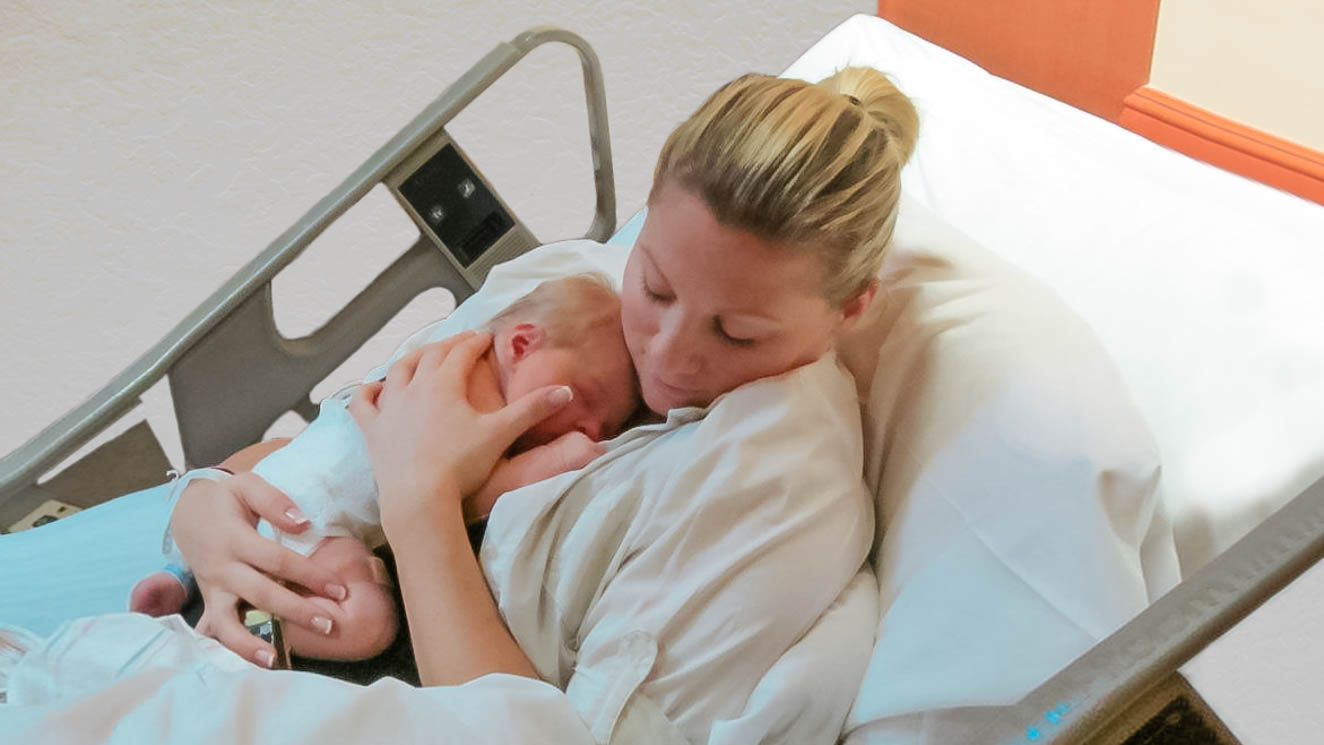

My son was a fussy baby. As long as I held, or nursed, or co-slept with him, he was mostly happy—but god forbid I ever left him on a play mat, or in a bassinet. He would go ballistic. So, my first two years as a parent were spent with a child glued to my body. My nipples were his only pacifiers, and even at my side in bed he woke every twenty minutes (as did I). When I left the house to work part-time, I would have to pry my son off me and listen to his gut-wrenching screams as I handed him over to our very sweet and attentive nanny. It was beyond tough.
Now, as a tween, he’s independent for his age, but there are certain situations he will always avoid, like loud parties. He also has a tendency, when he’s frustrated with his friends, to easily descend into a spiral of shame, isolating himself and ruminating on the issue for days. He also loathes the bustling world of organized after-school activities, preferring instead to tinker with his own projects at home.
My daughter, on the other hand, was a more laid-back baby, but as she’s gotten older has developed an intensity of opinions and feelings which always feel several decibels louder than those of most other kids her age. One recent evening, I was deep in my dinner-prep groove. I had just finished chopping the carrots and onions. The olive oil was sizzling in the pan. Then I heard my daughter (nowhere near her occasionally-tormenting brother, btw) burst into sobs.
“What happened, sweetie?” I asked.
“I just miss Omi and Savta sooooo much,” she wailed. Those are her two grandmothers, and for the record, she sees both of them pretty regularly. But it didn’t matter; copious tears flowed, and it took all of my dinner prep time to help her sort it all out. I love my daughter, and I love that she feels so deeply. And, yet, attending to her wildly variable and all-consuming emotional needs can be demanding.
So, those are my two kids, both wonderful human beings, both challenging in their very own ways. They’re differently — but pretty equally — intense.
The book that’s most helped me understand and navigate my children’s extremes is Dr. Elaine Aron’s The Highly Sensitive Person. Actually, I’d first read it years ago for myself because I was finding new motherhood so loud, so full of other people’s needs, and so overly stimulating of my senses that I was prompted to seek answers. Since then, it’s been helping me to recognize and address my own needs as a person and a parent better.
Aron’s research shows that about 15-20% of adults and children worldwide have more reactive nervous systems than average, and that makes them Highly Sensitive People (HSP). Being an HSP is not a disorder, but a neutral trait that comes with its own challenges and strengths. Dr. Aron’s self-assessment for adults includes questions about how much other people’s moods affect you, whether you’re bothered by intense sensory stimuli like loud noises and bright lights, and whether you are particularly sensitive to caffeine. Turns out, I’m an HSP.
It also turns out that high sensitivity is a genetic trait, and that HSPs often have HSCs, Highly Sensitive Children. When I learned that, a light bulb went off in my head.
I asked Dr. Parie Faridnia, a licensed clinical psychologist who specializes in helping highly sensitive children and their families in Southern California what the trait tends to look like in younger children. According to Faridnia, in a baby or a toddler you might discern:
- discomfort with strong sensory stimulation, including sensitivity to strong lights or sounds, scratchy clothing, harsh tones of voice, or unpleasant smells
- heightened emotional responses to parents’ or caregivers’ moods
- the need to take more time to enter a play situation
It’s important for parents to understand that high sensitivity is not the same as shyness, introversion, or inhibition, though it’s possible to be highly sensitive and those other things. Similarly, sometimes highly sensitive traits can lead to a misdiagnosis on the autism spectrum or a sensory processing issue, and Faridnia suggests that parents that educate themselves on the HSC traits before looking toward a diagnosis. Unlike with autism, HSCs are often highly attuned to their parents’ feelings and those of others, leading to a heightened sense of intuition and empathy. HSCs are capable of deep analysis and understanding, but the flipside is that sometimes all that thinking, feeling, and processing can become too much, leading overwhelmed HSCs to act out in anger or frustration.
“The parents I work with describe it as if their children have an extra sense,” Faridnia said. “They’re highly attuned, but they might also be more fussy, or have more issues when they’re very young.”
Faridnia encourages parents to resist comparing their highly sensitive child to other children. They’re going to learn and develop a little differently—sometimes more rapidly, and at other times less so.
“It’s like having a superpower—that’s what I tell the kids and families I work with,” she said. “And while it can be difficult, [it comes with] a lot of strengths.” That’s where that intuition and empathy come in.
If you happen to be an HSP yourself, it’s worthwhile to learn how to deal with the trait in your everyday life, and particularly in your life as a parent, Fardinia said. “Work on your own stress levels, and that will work wonders for your child.”
I have to agree. Once I understood my own needs as an HSP, I began taking care to avoid the most overstimulating parenting scenes when I could. For instance, an indoor trampoline/obstacle course/mega-play structure type of venue on a Saturday morning is a place you’ll never find me. I’m also teaching my kids that, while I’m good at focusing, I’m not good at doing ten things at once or having multiple simultaneous conversations. They have to wait their turn to ask me for what they want or to tell me about the blue-tongued lizard they saw on their field trip to the zoo. It’s still a work-in-progress—I mean, they’re kids—but it feels like they’re starting to get it. And I’m a much happier mama.
We’re also learning to adjust our family schedule to accommodate my kids’ needs better. My husband handles school mornings so I can start my workday by 7 am. Then I’m able to do pick up at 3pm—having accomplished a full day’s work—and my son doesn’t have to suffer through a perfectly decent after-school program that would overstimulate him after a long day in the classroom. And as for my daughter? I’m learning to respect the depth of her feelings. I can appreciate her kindness and how much she loves the people in her life, and I’m also teaching her to create boundaries and to compartmentalize so that the weight of the world isn’t quite so heavy. It’s still a work in progress, but we’re getting there.
If you think you or your child may be highly sensitive, there are plenty of resources that can help. If you’re working with a therapist, Faridnia advises seeking out one who understands the trait and has training in working with highly sensitive individuals. Not enough mental health professionals do, she said, and, unfortunately, that can lead to incorrect diagnoses.
Resources:
- www.hsperson.com
- The Highly Sensitive Person and The Highly Sensitive Child by Dr. Elaine Aron
- The Strong, Sensitive Boy by Dr. Ted Zeff
- Understanding the Highly Sensitive Child by James Williams
- Supporting the Highly Sensitive Child by James Williams and Lucy Skye







